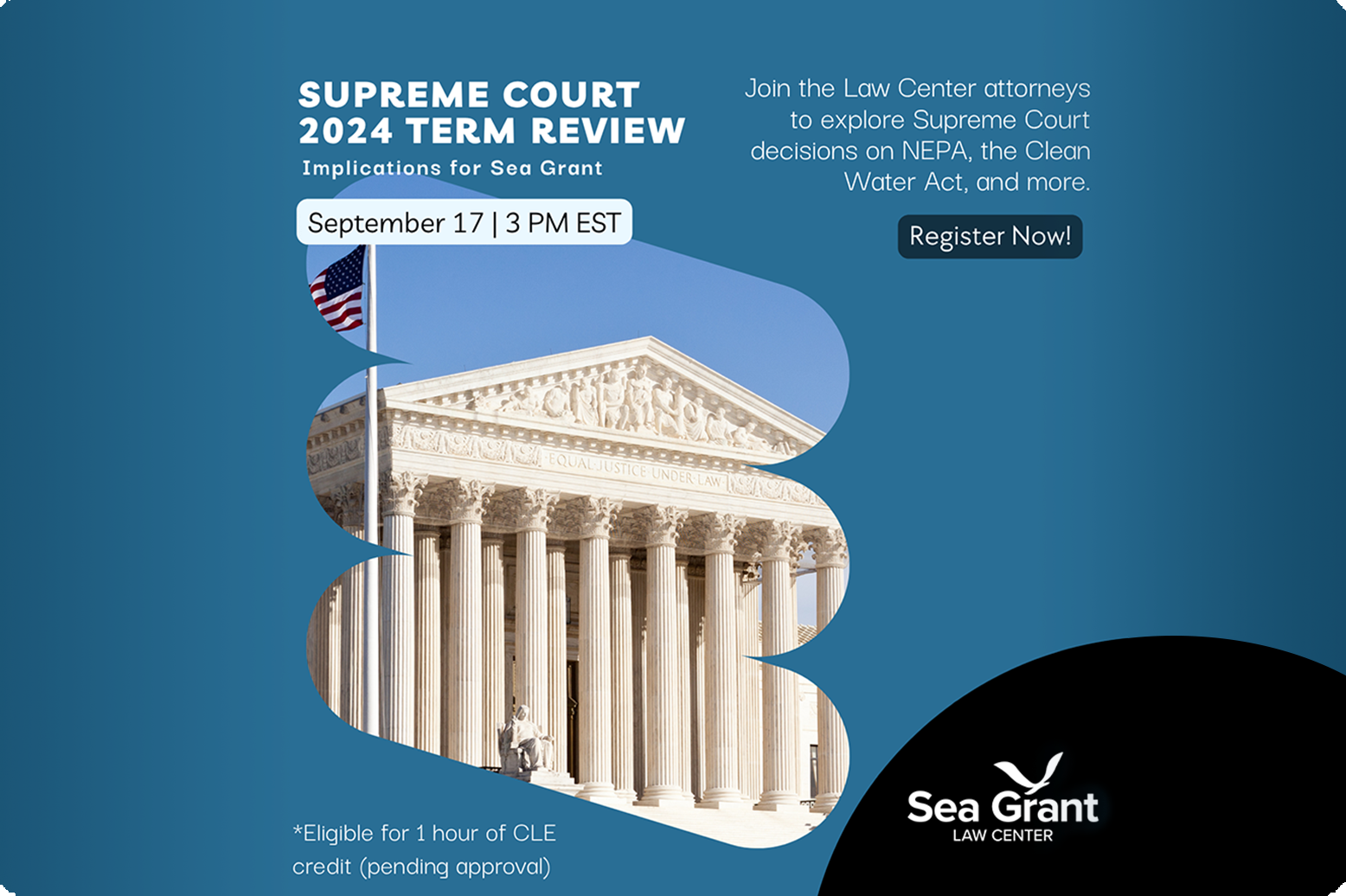
On September 17, 2025, the Law Center will be hosting our annual Supreme Court webinar. This webinar will cover environmental law cases from the 2024–2025 U.S. Supreme Court term, as well as review the impacts of past cases and preview notable environmental cases in the upcoming term.
The 2024–2025 term was another big year for environmental law and while the impacts of these cases are yet to be determined, they will likely affect federal environmental regulations and conservation efforts in the years to come.
City and County of San Francisco, California v. Environmental Protection Agency
In San Francisco v. EPA, San Francisco challenged the EPA’s ability to use narrative “end-result” requirements in National Pollutant Discharge Elimination System (NPDES) permits that do not set specific limits on discharge but instead require permittees to not exceed water quality standards. San Francisco challenged these requirements claiming that under the Clean Water Act the EPA must set specific numeric limitations for all NPDES permits. In a 5-4 decision, the majority agreed with San Francisco and stated that the Clean Water Act language explicitly required the EPA to set specific limitations and requirements on discharges for permittees to meet. [Blog post on ruling]
Seven County Infrastructure Coalition v. Eagle County, Colorado
In Seven County Infrastructure Coalition, a Colorado county and environmental organizations challenged the U.S. Surface Transportation Board’s (Board) approval of an 88-mile railroad line, claiming that the Board had failed to consider the impacts of increased oil drilling and refining that would result from the proposed railroad in their environmental impact statement (EIS). The Board claimed that the impacts of oil drilling and refining were outside the scope of what environmental impacts they were required to consider. In an 8-0 decision, the Supreme Court held that the Board was not required to consider the environmental effects of projects that were separate from the railroad project—meaning that they did not have to consider the impacts of activities that would result from the construction of the railroad. [Blog post on ruling]
In addition, the Law Center will also look ahead and discuss environmental cases that the Supreme Court has already agreed to hear in the 2025–2026 term.
Chevron U.S.A., Inc. v. Plaquemines Parish, Louisiana is a dispute over whether Louisiana and two parishes can hold oil companies liable for the production of crude oil during World War II. This suit is a consolidation of many coastal parishes seeking damages for the impacts and pollution caused by the oil drilling in wetlands and coastal areas. The Supreme Court will consider a procedural question concerning whether the Federal Officer Removal Statute applies. [SCOTUSblog docket]
Enbridge Energy, LP v. Nessel is a dispute over Enbridge Energy’s Line 5 pipeline that transports crude oil and natural gas to Canada. The Michigan Attorney General brought this challenge in state court to shut down the pipeline, claiming that the pipeline violated the Public Trust Doctrine and other state laws. The Supreme Court will consider a procedural question concerning the transfer of the lawsuit from state to federal court. [The SandBar article, starting on page 14]
Oral arguments for both cases have not yet been set.
The webinar is free to attend. Attorneys can receive 1 hour of CLE credit for attending from the Mississippi Bar.
Register for Webinar












